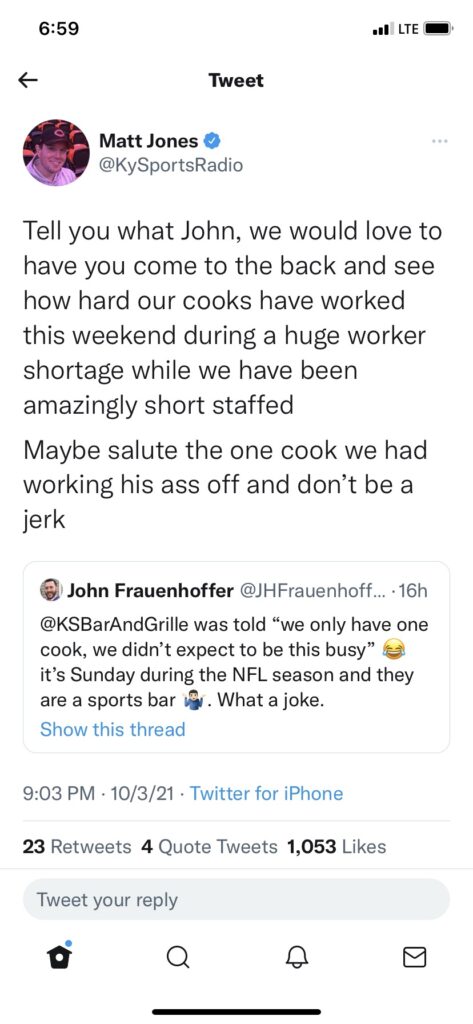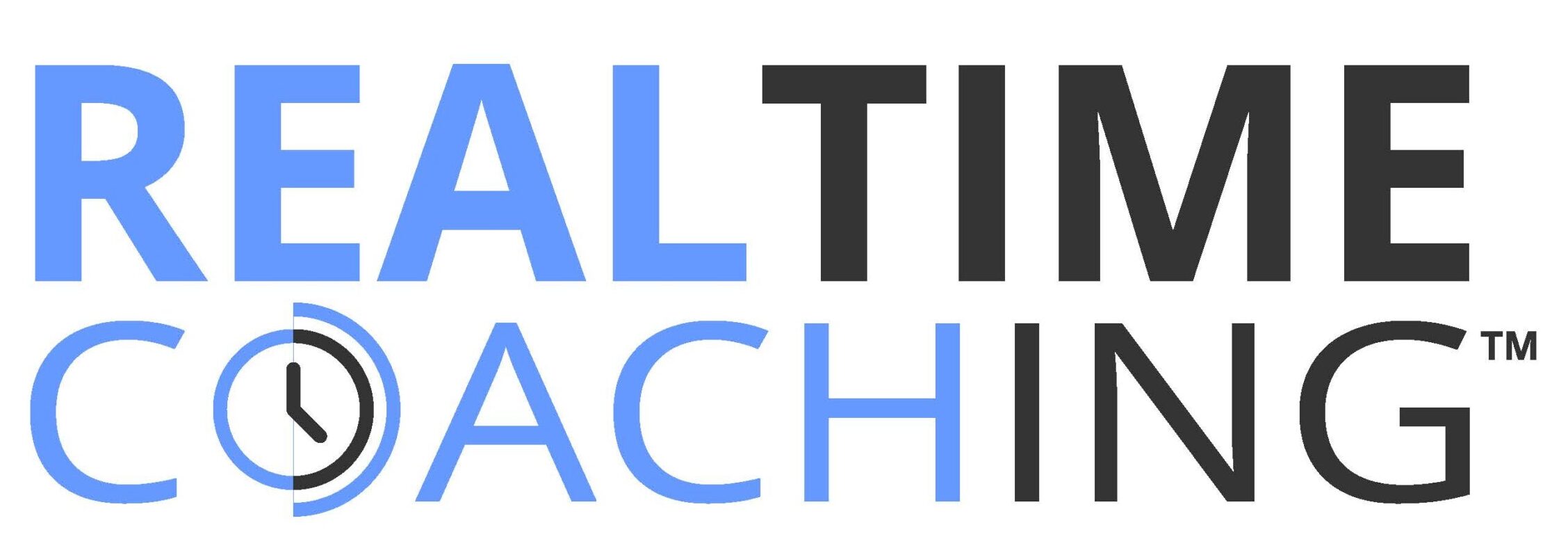Hello everyone and welcome to another version of “RTC: what would you do?”. Here’s today’s RTC scenario:
You are the executive coach for a mid-sized sports bar/restaurant owner, “Matt”. Matt is into many ventures and is probably best known for hosting a successful radio show. He is certainly considered a local celebrity and has recently become a national media host. He is active on social media and at the time of writing this scenario Matt has over 223,000 followers on Twitter.
Recently, a customer to his restaurant, “John” went to Twitter to provide some feedback to Matt on his recent visit to the restaurant. On Sunday 10-3-21 at 2:31 PM John tweeted: “@KSBarandGrille was told “we only have one cook, we didn’t expect to be this busy”. It’s Sunday during NFL season and they are a sports bar. What a joke.” At the time of writing this scenario John has 136 followers on Twitter.
AT 6:59 PM that same night Matt replied on twitter: “Tell you what John, we would love to have you come to the back and see how hard our cooks have worked this weekend during a huge worker shortage while we have been amazingly short staffed. Maybe salute the one cook we had working his ass off and don’t be a jerk.”
Matt has said several times, “don’t ever punch down, always punch up.” Your next coaching meet with Matt is tomorrow. As Matt’s coach, what are you going to do? I look forward to your thoughts, comments, replies, and questions.


Social media has become a battle zone – people are not afraid of saying anything because they are behind a computer. Matt owns a restaurant and John is a customer. Matt should be professional and respond to John as he would any customer face-to-face. Take the high road – personal accountability & empathy! Negative emotions (comments) spread like wildfire. All he had to say was, “We apologize for any inconvenience, we are experiencing a shortage of workers at the moment, but we are working hard to ensure our customers know they are still important to us. Please bear with us (and all restaurants) as we are experiencing challenges beyond our control.”
There Are Two Experts In Every Conversation
Most of you who are reading this can finish the title – There are two experts in every conversation. I am the expert of my intention. You are the expert of my impact.
If I am Matt’s coach, when we next get together I would tell him I saw John’s comment and his response. I would ask Matt if he wanted to spend any time talking about John’s comment and his response. Assuming Matt says, “yes” I would ask him what his intention was when he wrote that response.
He might say that he wants to make his column a little edgier, to keep people checking in. It worked for Howard Stern. If so, his response was on target.
Or, maybe he feels he needs to be loyal to the bar’s employees.
Or, maybe he says, “Look, it was almost 7pm. The bar ran behind all day and all I heard were complaints. Do they think I want to give bad service? So when John fired on me online I fired back. It wasn’t good on my part and I will deal with that in my next column.” Okay. Problem solved.
And if he says, “Look, John sent a snarky note. He deserved that response.” I might say, “Matt you may be right. What was John’s intention?” Of course, we don’t know, but most of us are quick to make the Fundamental Attribution Error – basically, taking the comment in the worst and most hurtful way, making John a “jerk.”
As a coach, I will resist lecturing Matt about his response. After I clarify his intention (what do you want) I will ask him if he thinks his response will get him what he wants. And, we will go from there.
Unfortunately, these kinds of shots are all too common on social media, as well as in person. As the other person who responded commented, empathy is needed and empathy is almost non-existent on social media. Note that masterclass.com just started an empathy course. Without empathy it is almost impossible to know the other person’s intention – to “see it as they see it and feel it as they feel it.”
Dr. Stephen Covey commented that maturity was a balance of courage and consideration. We can all work on having the courage to speak up for what is important to us, AND having the consideration to understand the other person’s point of view.